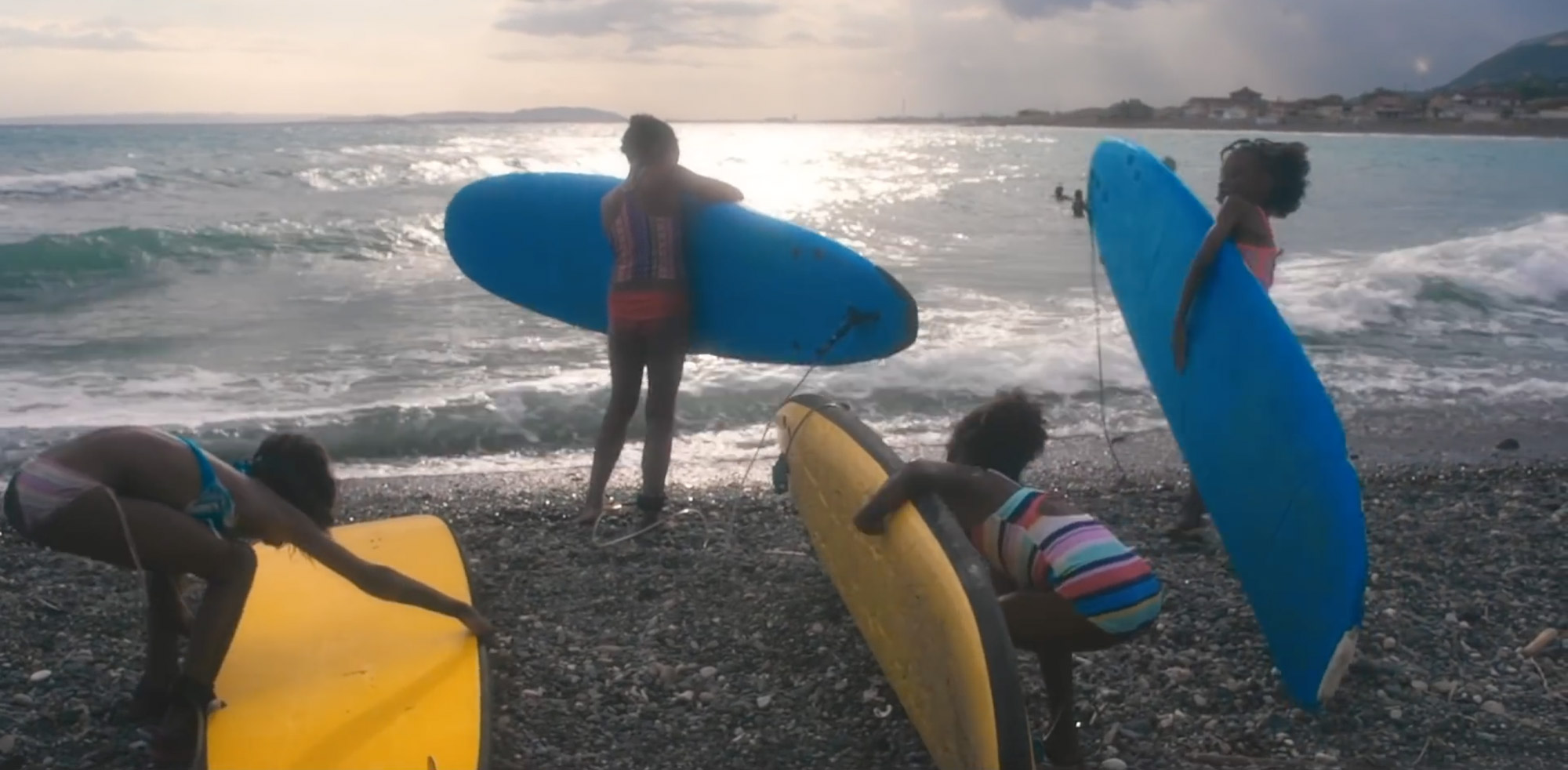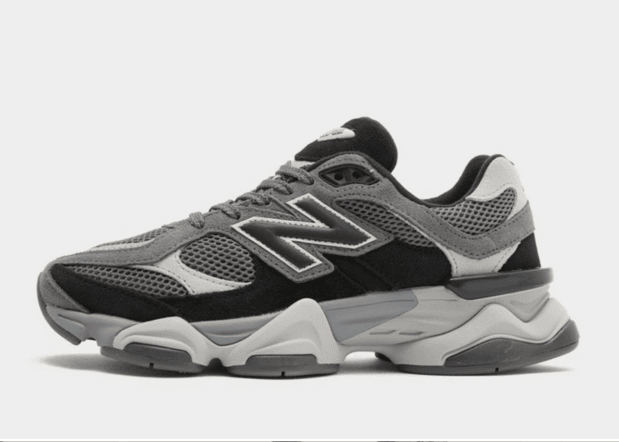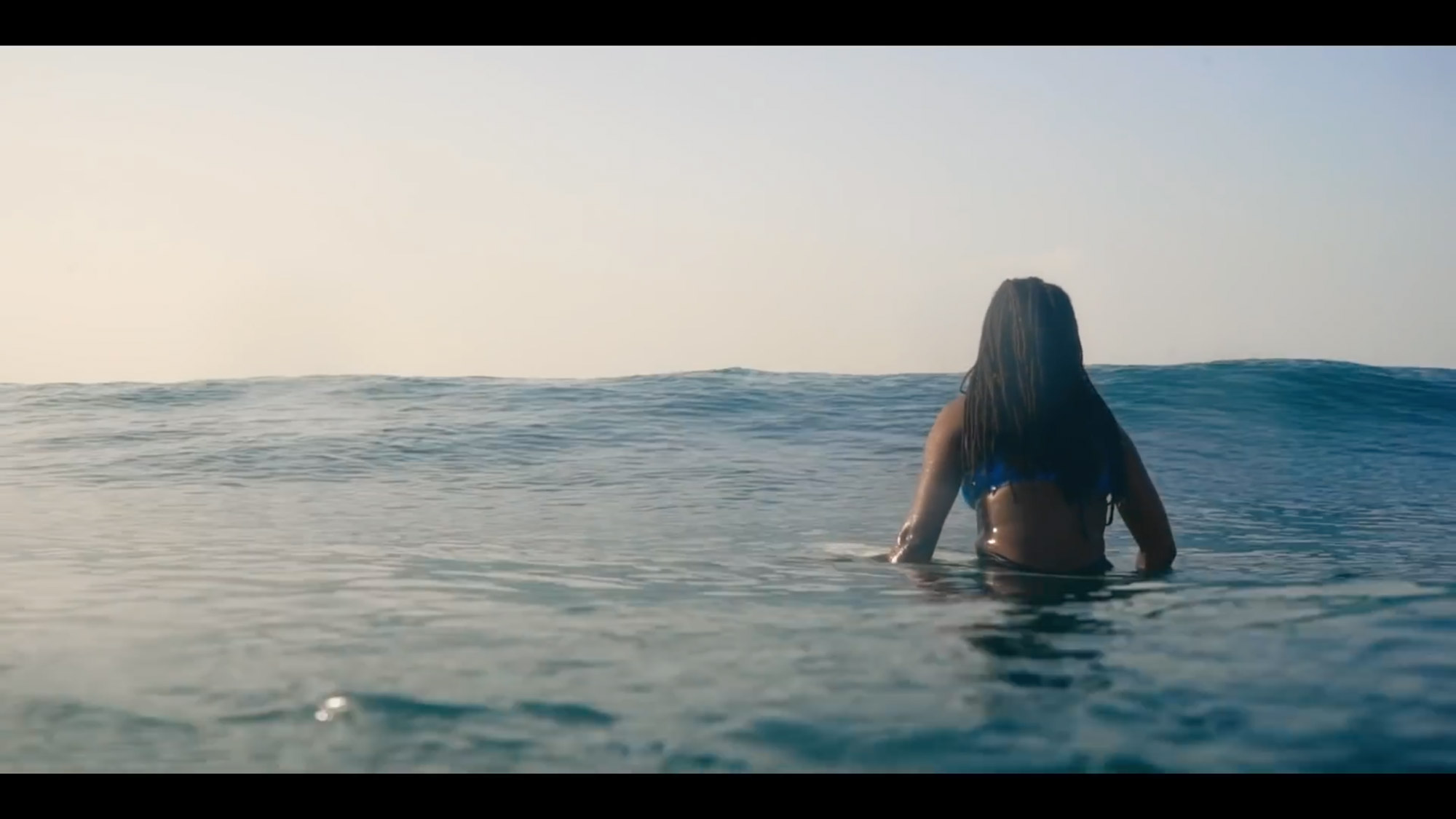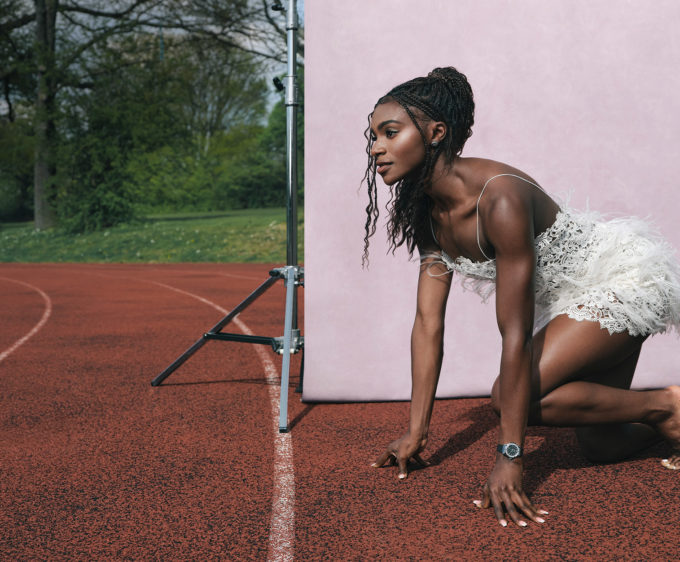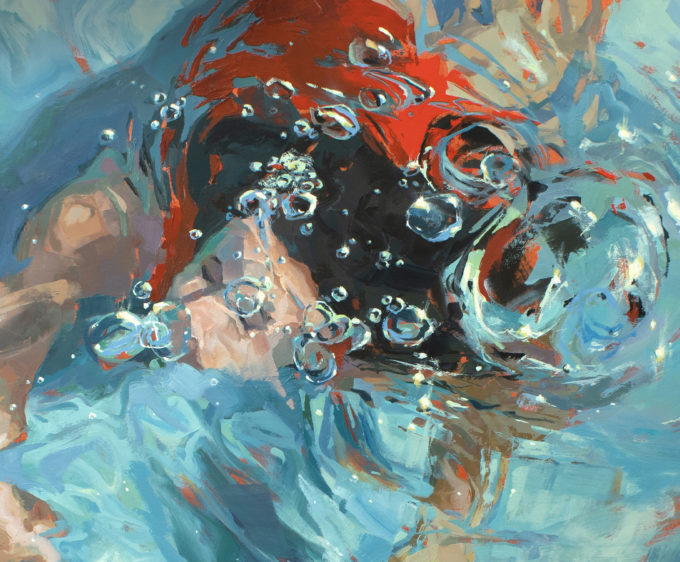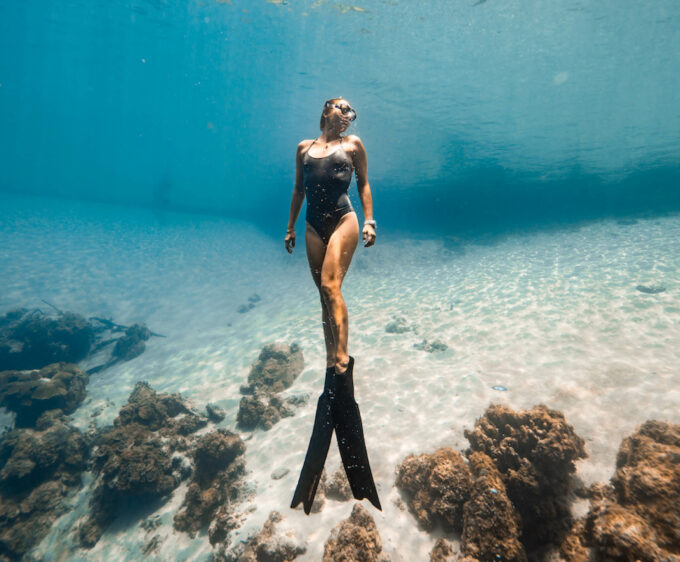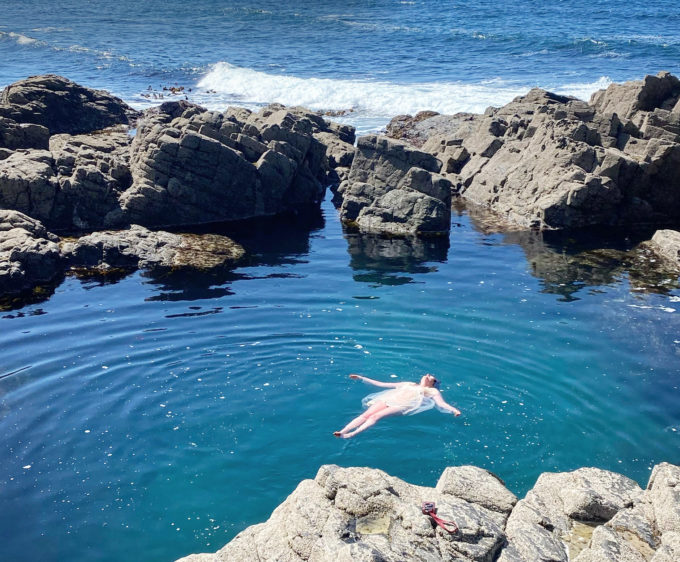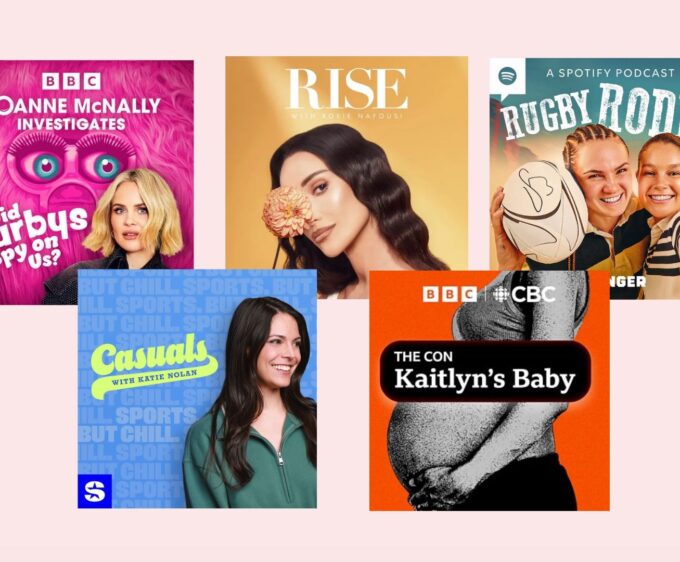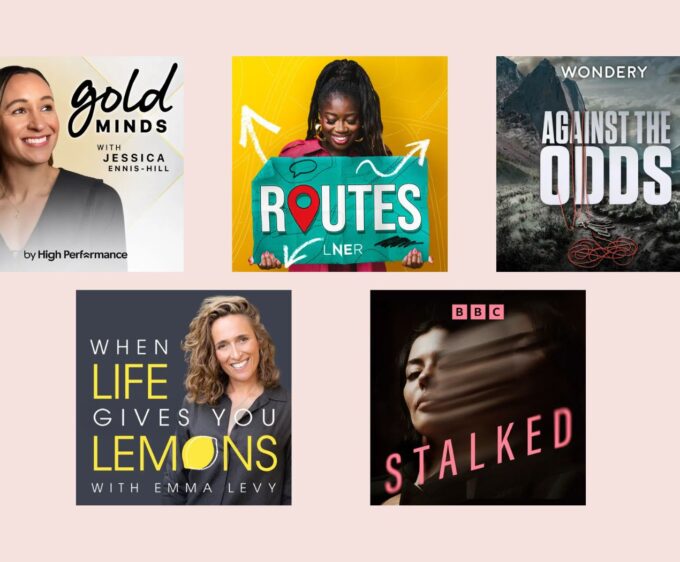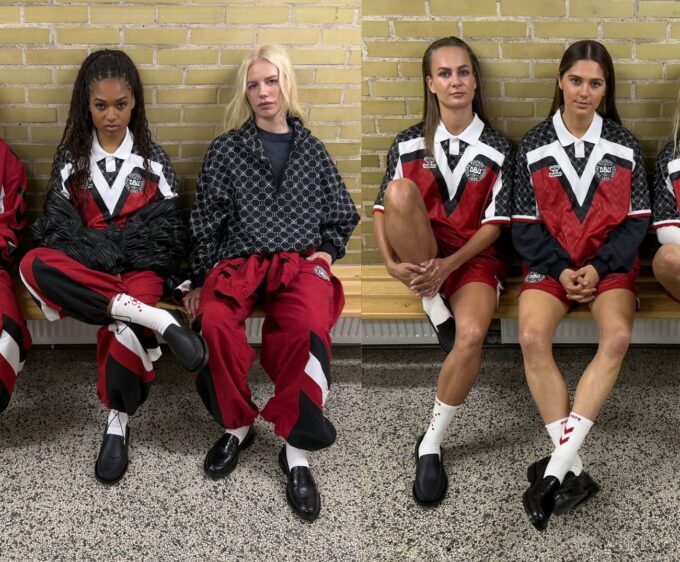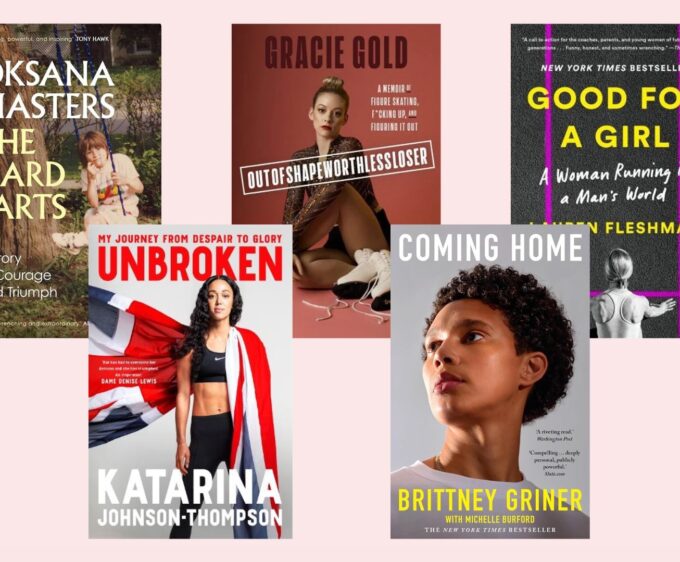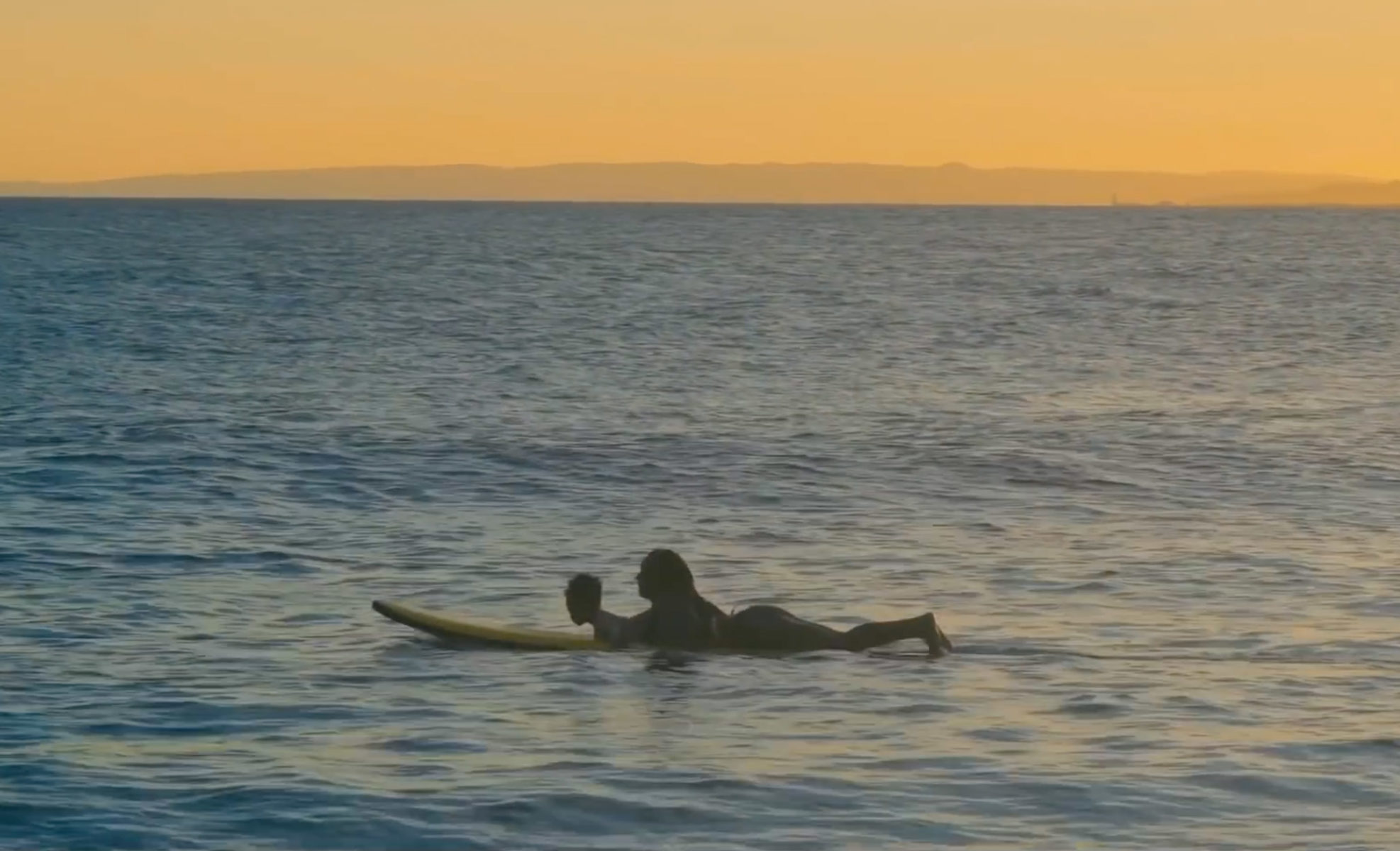
Surfing Women Making Waves
Documentary directors Joya Berrow and Lucy Jane make an impact with their dramatic short films. Surf Girls Jamaica is one such tale. We talked to the couple about their work and what drives them
By Glorious
Film by Joya Berrow and Lucy Jane
Joya Berrow and Lucy Jane are a directing duo focusing on climate justice, land and ocean regeneration, extreme sports and amplifying marginalised voices in the climate movement. They use film as a tool for positive social change.
Both came at filmmaking from different avenues. Lucy moved away from home to study media as a BTEC in Birmingham, while Joya was at sixth form school in Dorset studying and shooting analogue documentary photography. After pursuing these different paths, a few years later they met on a BA Film Practice Course at London College Of Communication (UAL) in South London. They would both arrive at the lecture room looking a little more rugged and wind swept than everyone else. In their final year they made friends and collaborated, which led them to make Away With The Land in the Outer Hebrides of Scotland. They spent most of their last year of uni following a crofter up the mountains in Scotland, anything to escape the dark underground lecture room back in London. Something that they have had in common from the start is how they approach every film on a very human, personal level. They see film as a tool and believe in the power of film as a strong impact medium.
Since then they have worked with incredibly inspiring people to tell their stories and highlight social/ environmental justice issues from Jamaica to Colombia to their own doorstep in England’s south west, developing their practice as impact and climate-conscious filmmakers. We talked to them about their insightful film Surf Girls Jamaica.
Glorious: You’ve built a reputation for making films about empowerment and sport. Can you outline your work?
Joya and Lucy: We have made work at the intersection of a few subjects: women’s stories, extreme sports and social justice. Our aim is for our films to have a resonating cultural impact that creates positive change in the world we need to see. Highlighting underrepresented role models shifts cultural attitudes and helps with a much needed fairer representation of people’s voices, it really matters how people are represented. Our films seek to tell emotive human stories in fresh creative ways and we specialise in environmental and social justice narratives, helping to bring empathy and human connection to these topics.
Glorious: What drew you to wanting to make a film about surfing? Do you surf or have a particular interest in the sport?
Joya and Lucy: Yes, we’re both surfers and the ocean is a huge pillar in both of our lives. We travelled together in South America, visiting different surf spots and meeting inspiring ocean communities.
It was at the 2017 national championships in Colombia where we immediately felt the need to make a film that offered a new perspective on the surf world. It was amazing to see the diversity of the athletes and how inclusive the whole event was. Everybody was so supportive and involved, from local children to adaptive surfers to the best ranked athletes in the country. We realised that surf communities in these regions had been ignored by mainstream surf media and felt it was important to tell these underrepresented stories because of the negative cycle and lack of access this can bring to a sport. Back in the UK in 2018, we researched for weeks but there really was very little coverage on Afro-Caribbean surfers. There are whole groups of women who cannot see a role model or place for themselves within the global surf industry and we wanted to make a film that could shift this, to ask questions about why we were not seeing these women represented in global commercial surf media.
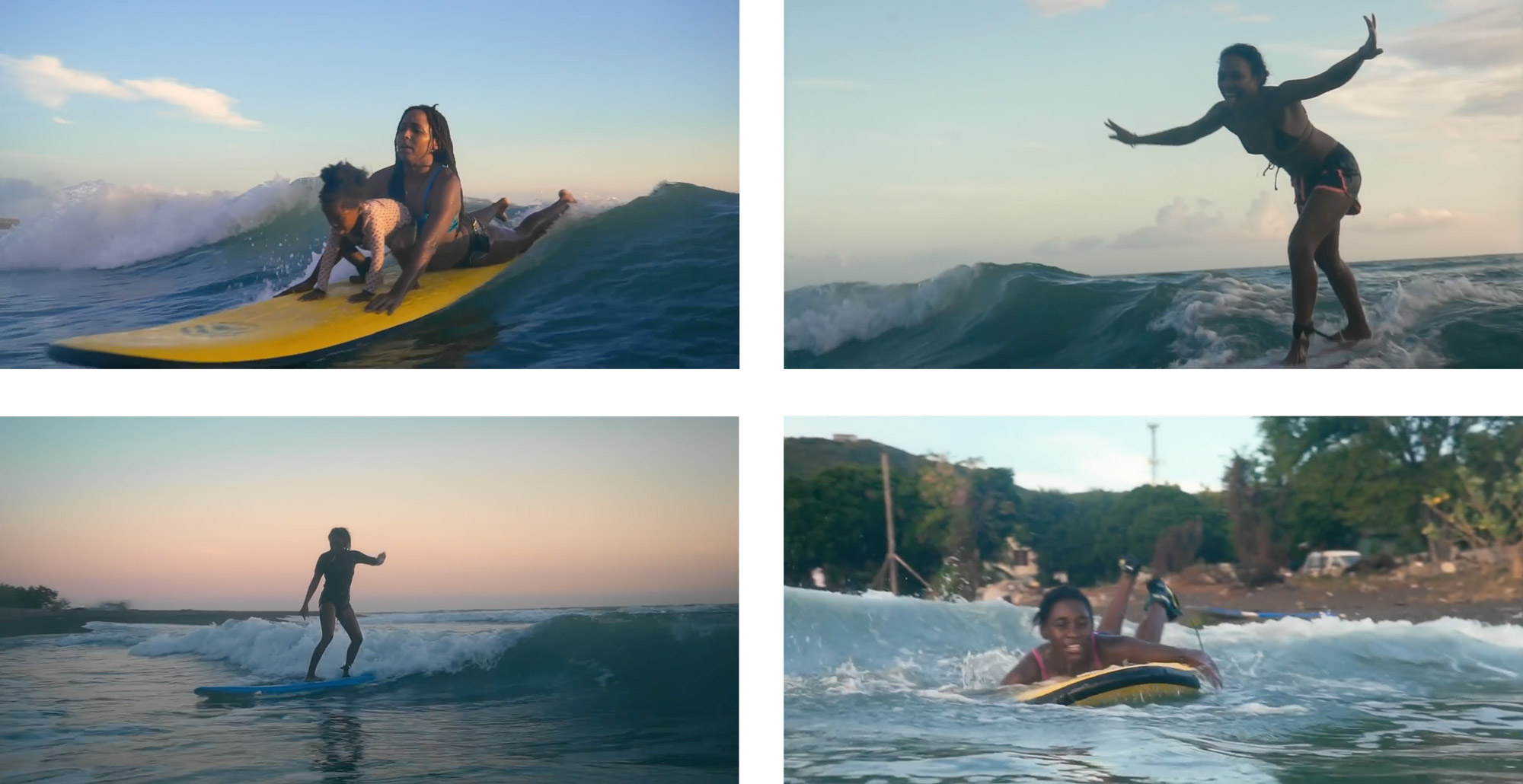
Glorious: How did you come to film in Jamaica and meet this amazing group of surfing women?
Joya and Lucy: We eventually found out about Imani Wilmot from an article that was a few years old and, inspired by her ambitions, we reached out to her. She is a filmmaker too, and so this whole process has been a collaboration with her. Surfing has incredible healing powers and Imani was using this to bring the women around her together to overcome whatever struggles they were going through. She really is an incredible role model, but her story had never been given any light. It has the potential to inspire people all over the world on so many different levels and that’s why we felt it so vital that her story is told. We flew out to Jamaica for over a month and spent the first two weeks with no cameras; we were just getting to know girls and build genuine friendships of trust and respect.
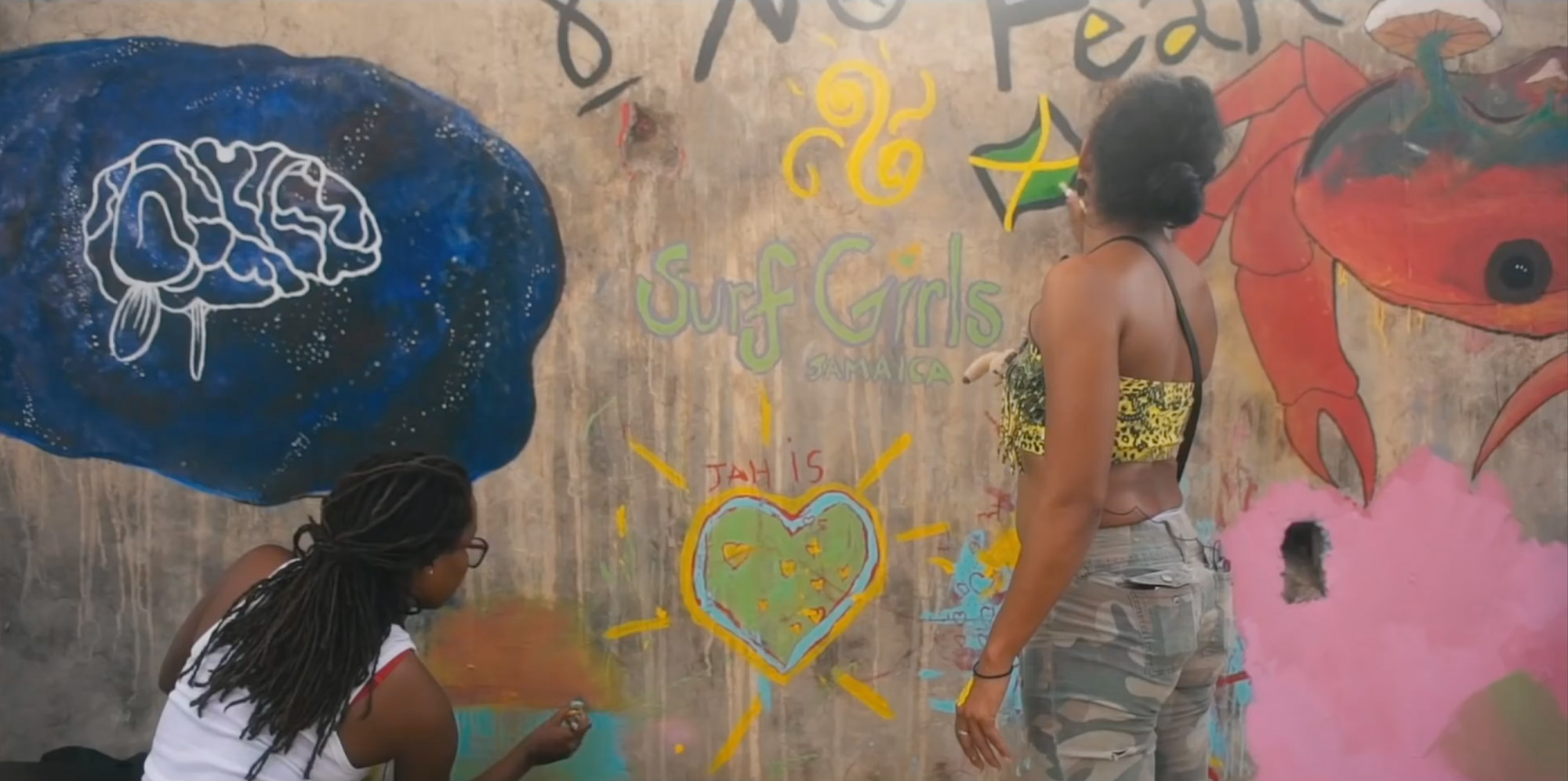
Glorious: How much did you know about Jamaica – the place, its people and culture before shooting Surf Girls Jamaica?
Joya and Lucy: We spoke to Imani a lot before going out there and began to gain an understanding through her. However, we went with full awareness that we were two Caucasian women entering a community that we were not a part of; we always try not to have preconceived ideas about how things will be, because we are inherently looking at the world through the prism we have been shaped by. Those first two weeks, we spent talking to the women, mainly just listening and observing. Throughout the filming process we had regular creative conversations with Imani and her family to ensure that we were telling a story they felt really represented them and their culture in truth.
Glorious: Were the women receptive to you making a film about them? Did they see it as something that could be helpful to their situation?
Joya and Lucy: We met and worked with many different characters, and each woman had a different response. Some were more shy and hesitant while others were immediately really happy to be on camera. By the end, we felt like we had built lovely friendships with the women and that they were beginning to see that we were making the film to make positive change for their community and women all over the world. The first all-female surf competition of Jamaica, which you see in the film, became this pivotal moment where we all got together. There was this amazing energy of what the future could hold for ocean therapy in their community and also the future of women’s commercial surfing in Jamaica.

Glorious: From the original concept, how did Surf Girls Jamaica develop?
Joya and Lucy: As mentioned before, we didn’t have presumptions or fixed ideas and went into filming with a flexibility and openness to what the story may be. We were following different women and seeing how they changed as we had more sessions with Imani. In the end we were guided by one main mission: for the film to be used as a positive tool within surfing and access to the ocean, and working from the bottom up – empowering communities of Black women to get into the ocean and see a place for themselves in the global surf industry.
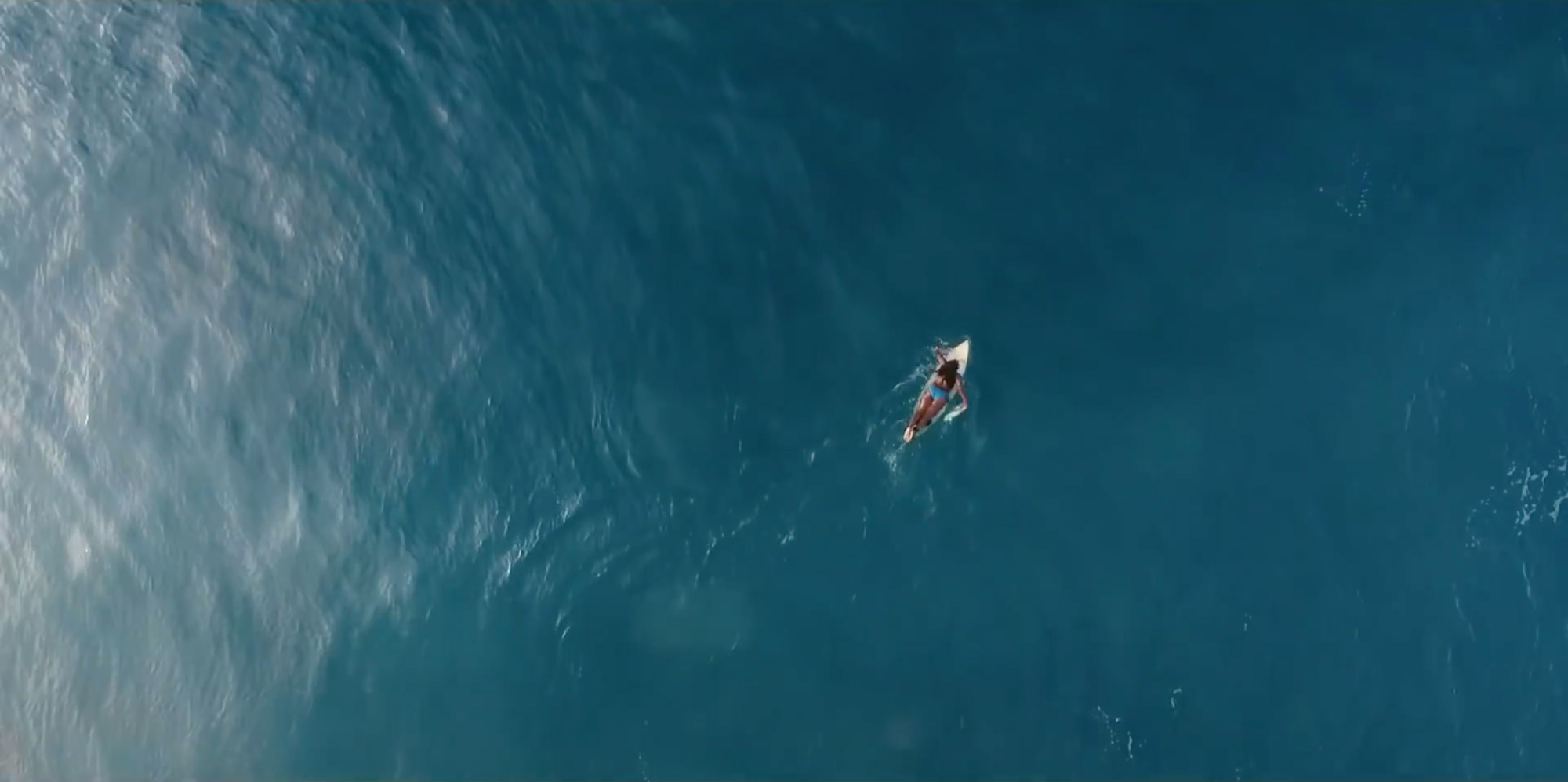
community
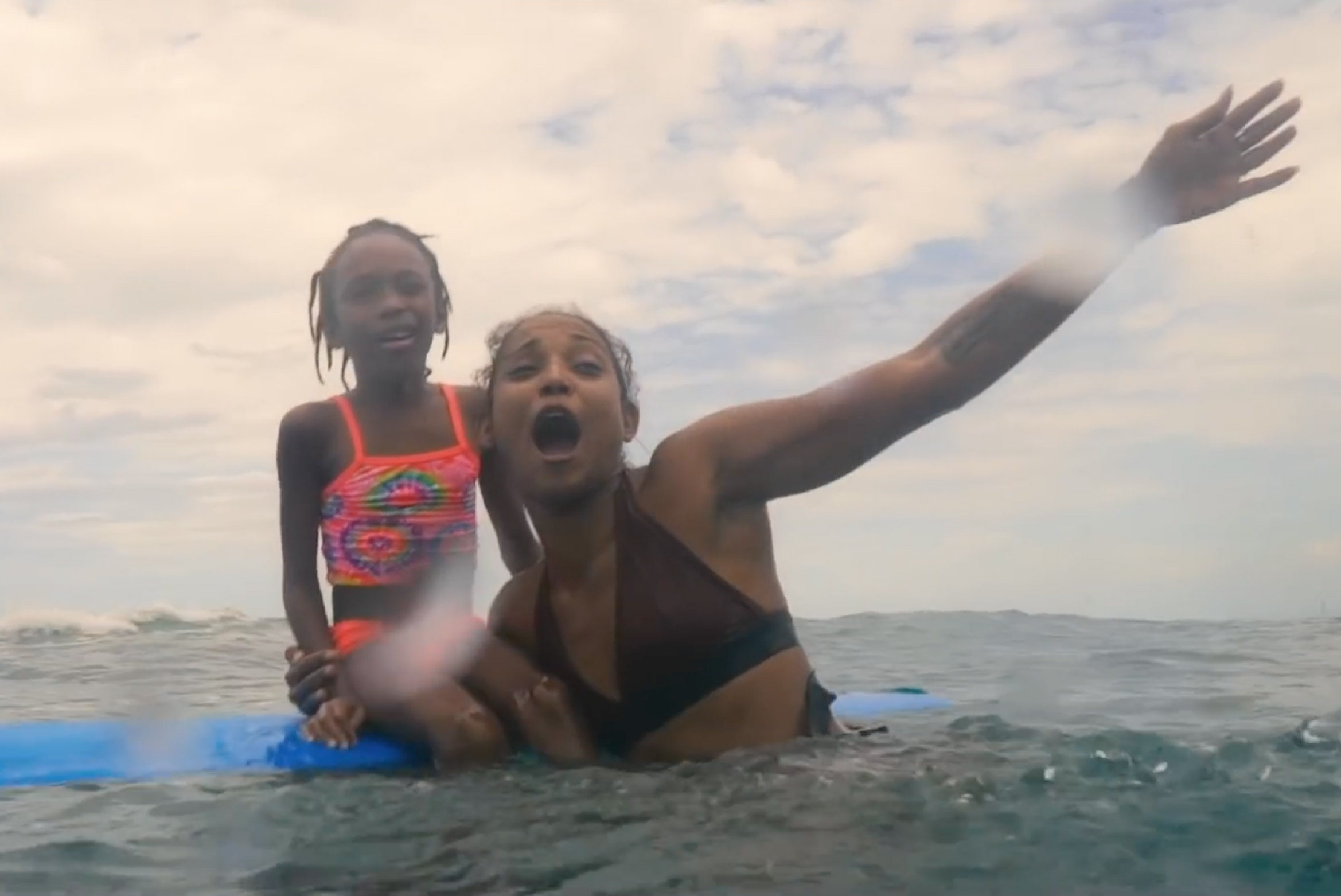
Glorious: How many crew members were there and how long did the film take to produce?
Joya and Lucy: We made, produced, directed, shot and edited the film together, just us two. But whilst in Jamaica we were lucky to work with a crew of Jamaican women, Mel (fixer), Apple (Sound and Drone) and Imani herself, who are brilliant creative women and made it all possible – showing us a window into female-led production in Jamaica. From finding Imani’s story to the final edit being released online, it was about a year. The momentum of the film is still picking up to this day, as we see it screened at events, Q+As and interviews such as this one help to keep the campaign alive!
Glorious: The first part of the film concentrates on women talking about life in Jamaica and makes no secret of the fact that it is harsh for girls and women in particular. How hard was it to approach this aspect of their lives for the film?
Joya and Lucy: That is a really good question, the film has a lot of harsh context up front and there were a few reasons why we choose to do this. Jamaica is undoubtedly a patriarchal society, sexual assault and abuse is a very real, daily experience for women there. Despite the hostile experiences they go through, the women we were surrounded by came back with even more strength.
The space that Imani has created is unique, in that there are not very many other support systems for women to escape from these challenges and therefore overcome them. Being a part of the surf girls’ family and using the ocean as this escape, together, brought us closer to them. Building those relationships was really important to the narrative of the film and for us to be able to approach those difficult topics with them. It was all about us allowing ourselves to be vulnerable with them so that they felt safe and nurtured and could be vulnerable with us. Excluding this context at the start of the film would have felt like an injustice to their daily experience. It also comes directly from their mouths, which is important and adds global context to their situation, for someone who has no understanding of Jamaica. This therefore means they can see the impact of Imani’s work even more starkly against the context at the start.
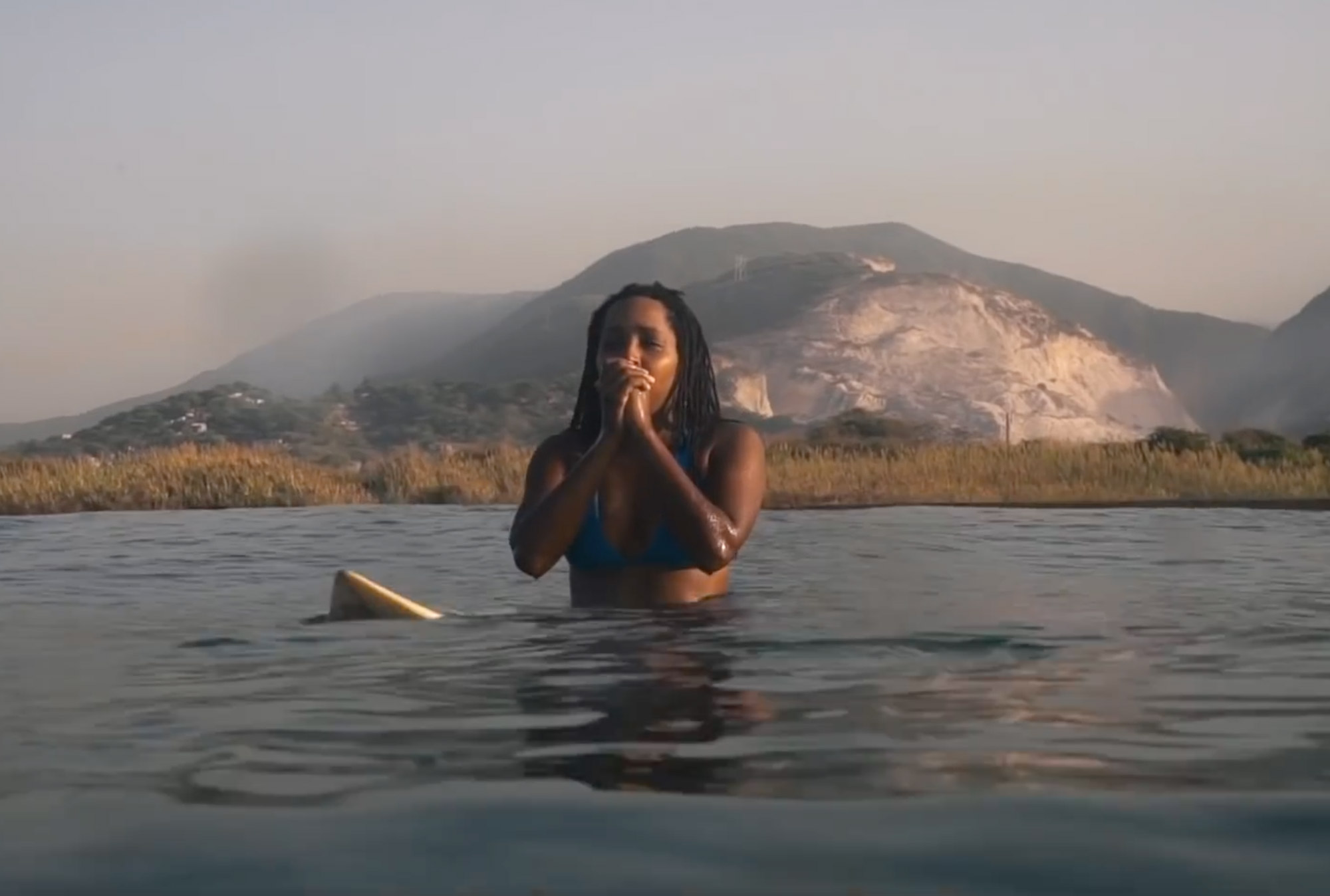
Glorious: We do see some of the men in the community. Did they seem supportive of the women? And what was their reaction to Surf Girls Jamaica?
Joya and Lucy: It was definitely a challenge, and took a while for us to be able to show that we weren’t making a film that attacked Jamaican culture and its men. We had particularly challenging conversations with Billy Wilmot, Imani’s father, who was, of course, protecting his family and tightknit surf community which he had played so much a part in creating. Those conversations became an integral part of our process, constantly making sure we were self aware and challenging our motivations every step of the production and helped us to make the most honest film with all of our intentions in the right place. Billy slowly opened up to us and it was really emotional for us to see him at the first female surf comp with Imani’s daughter, Nyah, cheering on all of the girls. When he saw the finished film, he was really happy and that meant a lot.
Glorious: Later on, we see the women on their surfboards. The way you film it is beautiful. How did you manage to film them? Can you explain the process?
Joya and Lucy: We were lucky that we were both there because it meant that Lucy could film in the water and Joya could film from land with a telescopic lens in order to capture different perspectives of the women surfing. Lucy used a water housing for her Sony camera and Joya filmed from the beach with a tripod. Filming with a water housing means you can float around in the waves and be very close to the girls as they sit on their boards, paddle into and ride waves. It allows you to capture the energy more closely from within the water.
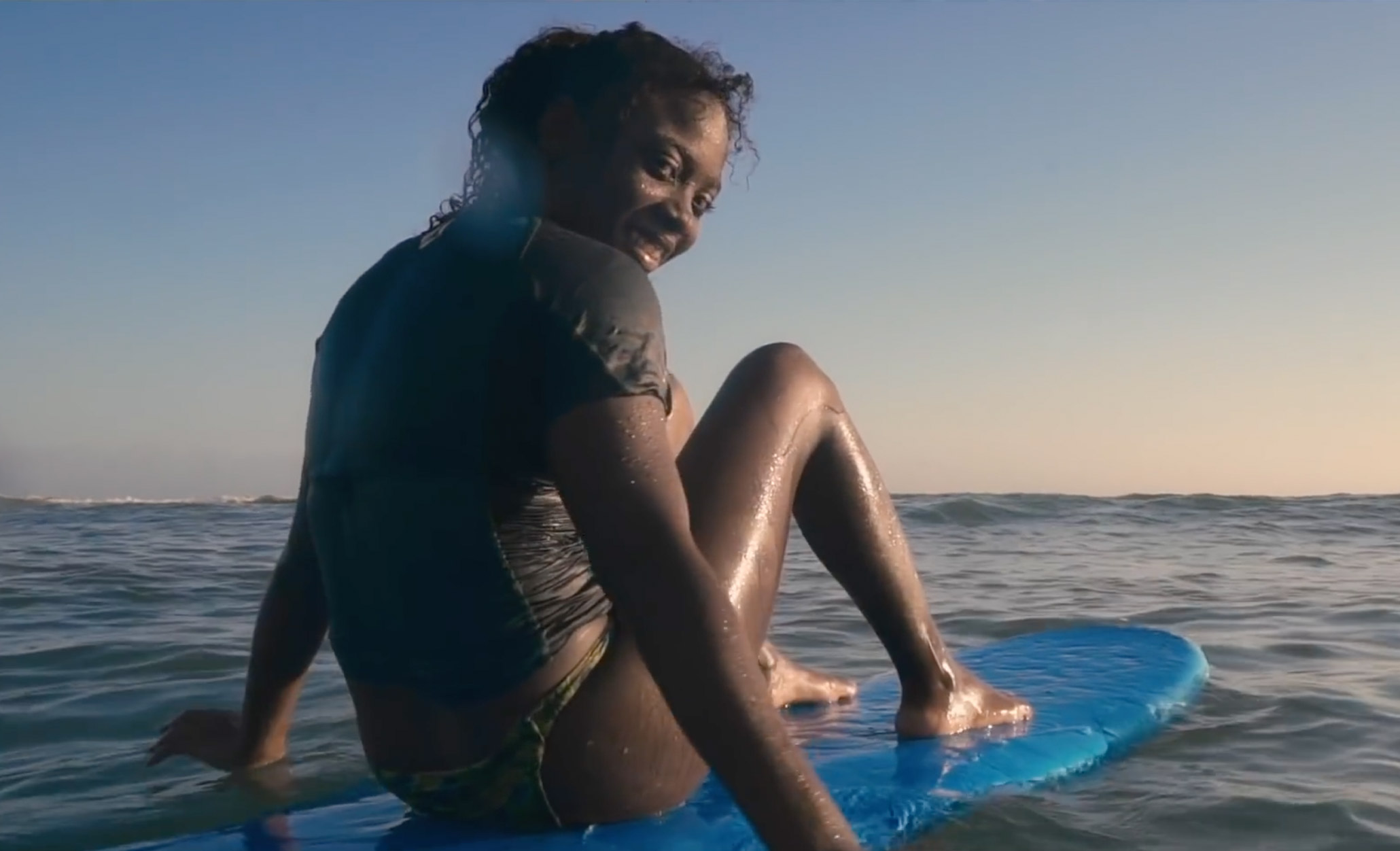
Glorious: The women comment at one point that Black people have traditionally not gone in the water, and there is no surf culture. At one point, a woman talks about a surfer who can’t actually swim. Did it feel to you as you made the film that women were finding a new culture of their own?
Joya and Lucy: Yes absolutely! It’s so beautiful that the Surf Girls Jamaica community can inspire women all over the world, yet they also have created such a powerful movement that is very unique to them, their needs, their wants and their sisterhood. There were as many young girls as there were older women and the community is creating the potential for young female surf athletes to grow, develop together and continue to inspire future generations of women in surfing. We could see that these women will continue uniting together through the power of the ocean, and to continue to overcome and therefore challenge the patriarchal structures that surround them. The culture is also making Jamaica even more of a landmark on the surfing map and this will open up more opportunities for young female Jamaican surfers to compete on the global stage.
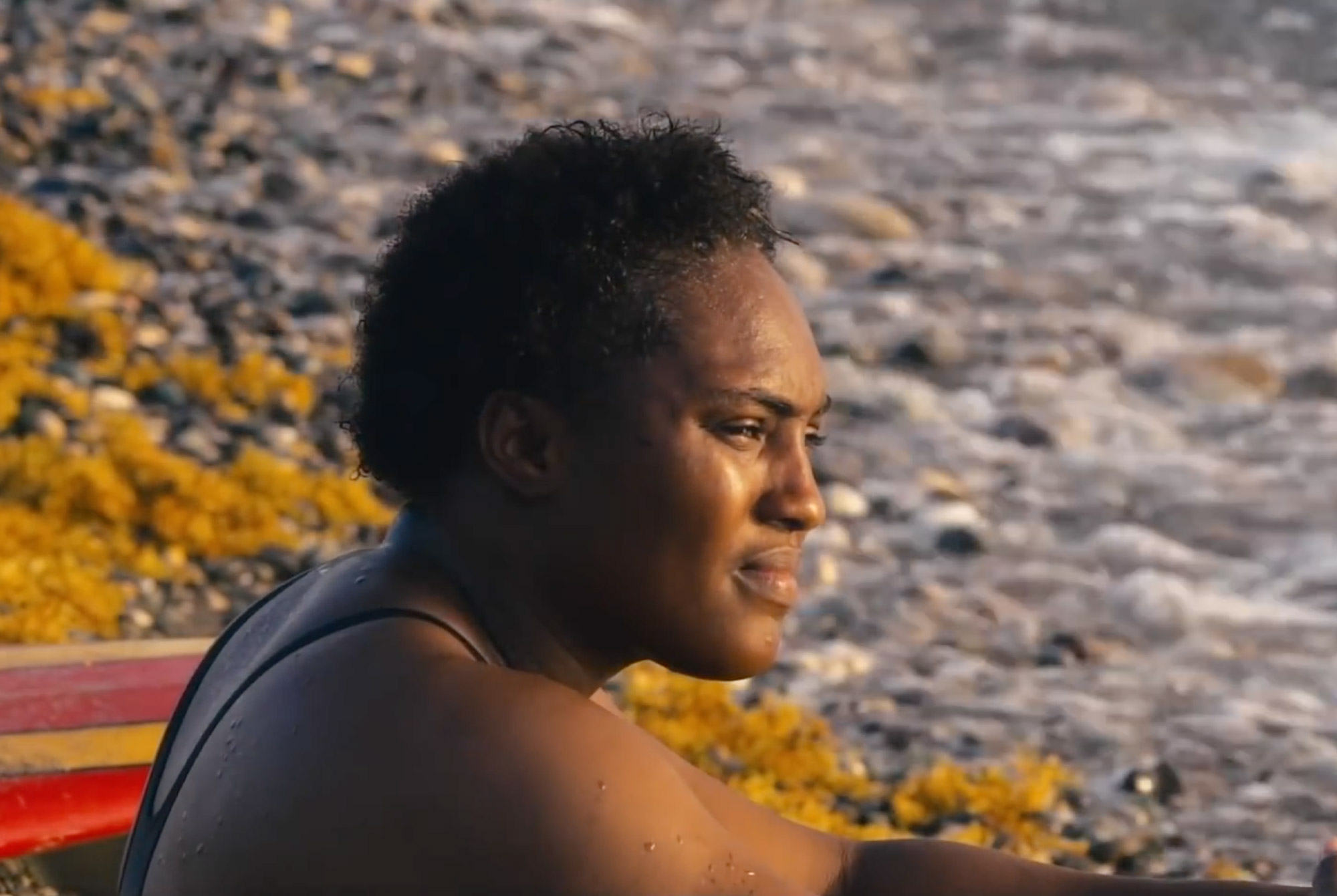
Glorious: Glorious recently published a story about Rhonda Harper who established Black Girls Surf, the organisation that inspires women of colour worldwide to surf and be taken seriously in competitions. Imani Wilmot, a role model in Jamaica works with Black Girls Surf, were you aware of the impact this organisation is having on helping Black women to claim their place in the sport?
Joya and Lucy: Yes! We know and love Rhonda – she was vital to the process of the Surf Girls Jamaica film. We also worked in conversation with her and especially in its distribution, where we worked with her to make sure the film reached the right places and had the greatest impact. Imani and Rhonda are great friends and long-time collaborators so she was always on the other end of the phone; at one point we almost included a scene with her in the film which would have been fab!
Rhonda’s work at Black Girl Surf is incredibly powerful in ensuring that black women have the opportunity to enjoy the ocean, learn how to surf and even find a competitive career from it. The organisation ensures that these women have a voice and the coverage they deserve, and will continue being a key driving force in pushing the surf world to a more inclusive and diverse place. Surf Girls Jamaica has been a huge asset to Rhonda & the Black Girl Surf community. Imani went on to do a Ted X Talk after the film’s distribution, highlighting “there is room on my wave”.
Glorious: As film makers, what was the most important aspect of this film to you?
Joya and Lucy: We were motivated for the film to make large waves to impact and change the sport of surfing. We used it as part of a wider discussion to challenge large brands, to show them their social responsibility and in the three or four years since we made the film, things are definitely changing for the better. The representation of many diverse athletes has increased and opened up more opportunities for sponsorship, created more funding and improved access on a local level all over the world for people to surf and find the therapy they need from the ocean. It has been amazing to be a part of that.
But even more importantly, we wanted Imani to feel represented wholly and in truth. For her to be able to show the film as an acknowledgement of the amazing work she has done and be a tool for her in continuing with her work in the future.
Glorious: What’s next? Are you making any more films about female empowerment and sport?
Joya and Lucy: We’ll always be drawn to stories in these fields and this year we are making a film about surfing much closer to home, which is very exciting. All we can say is we wanna keep talking about access to the sea, surfing, who we see represented in these spaces and therefore who has access to ocean therapy, so watch this space!!
